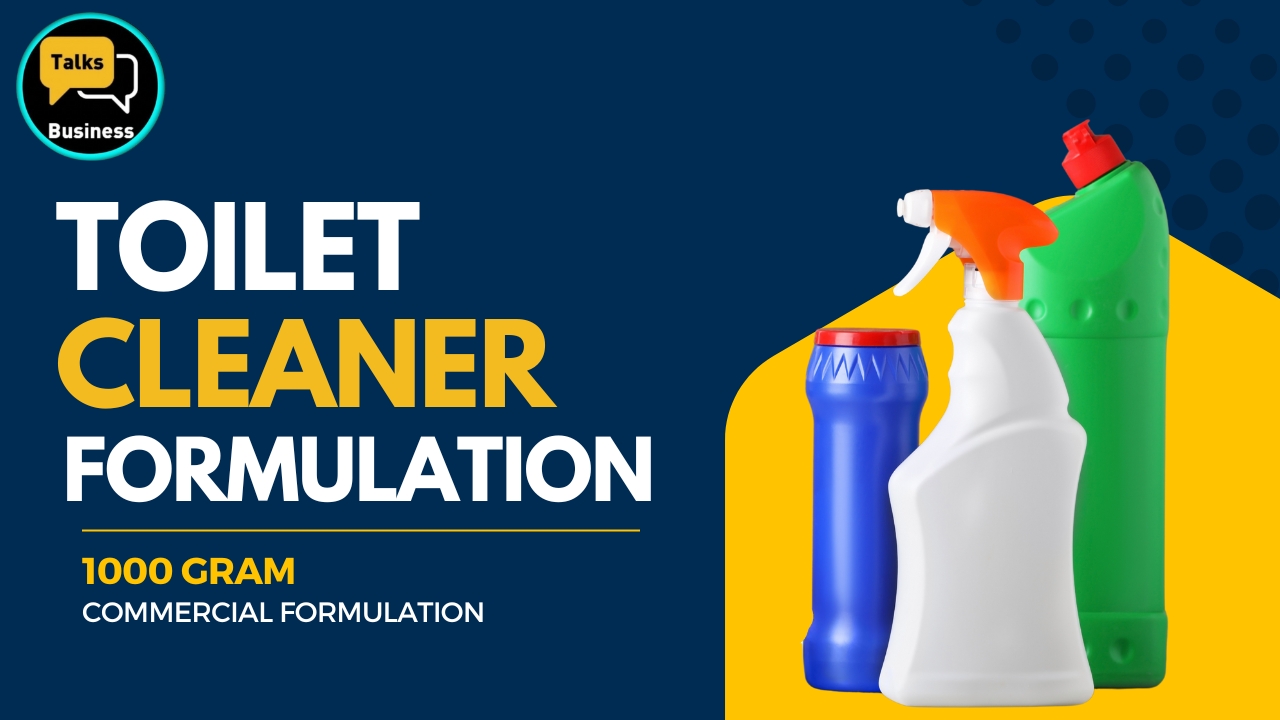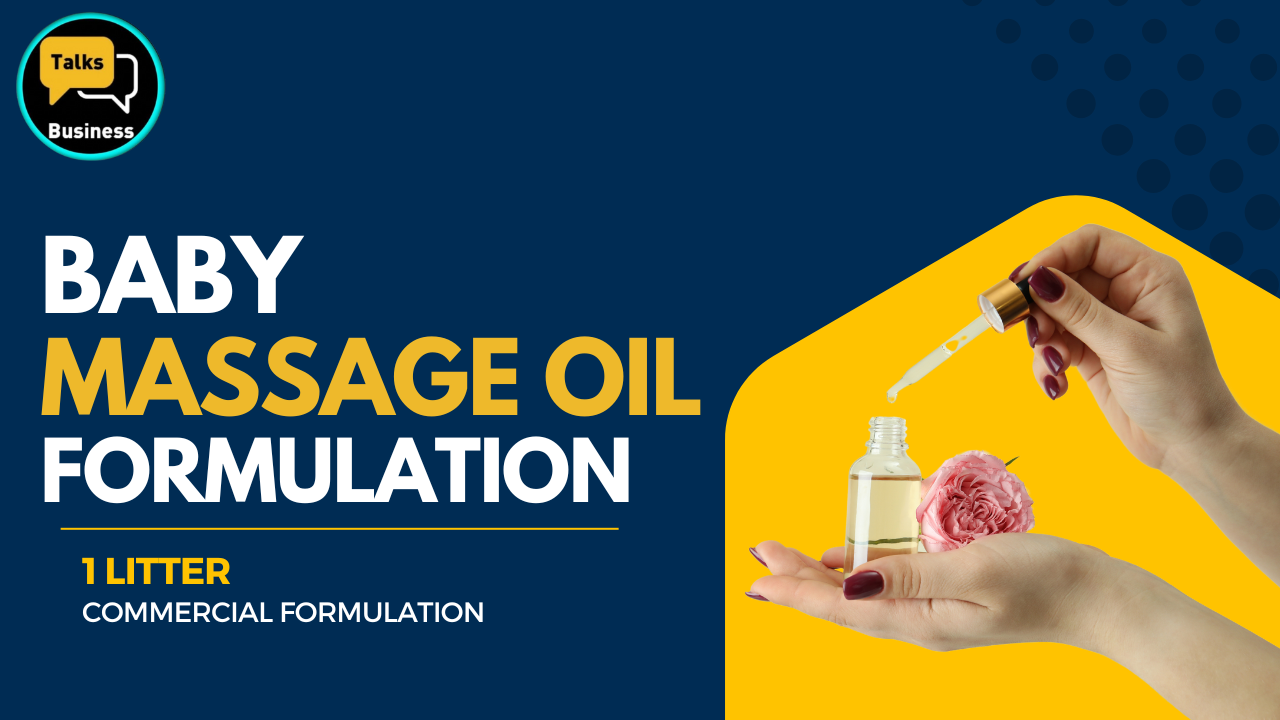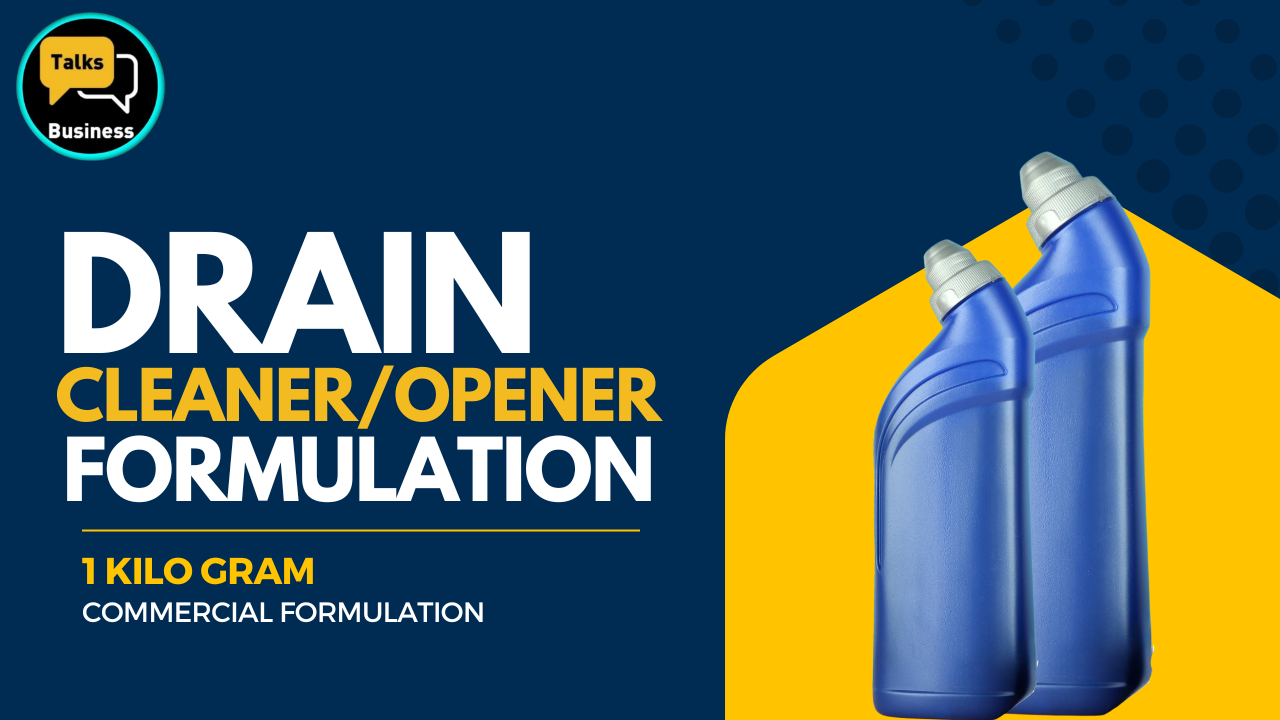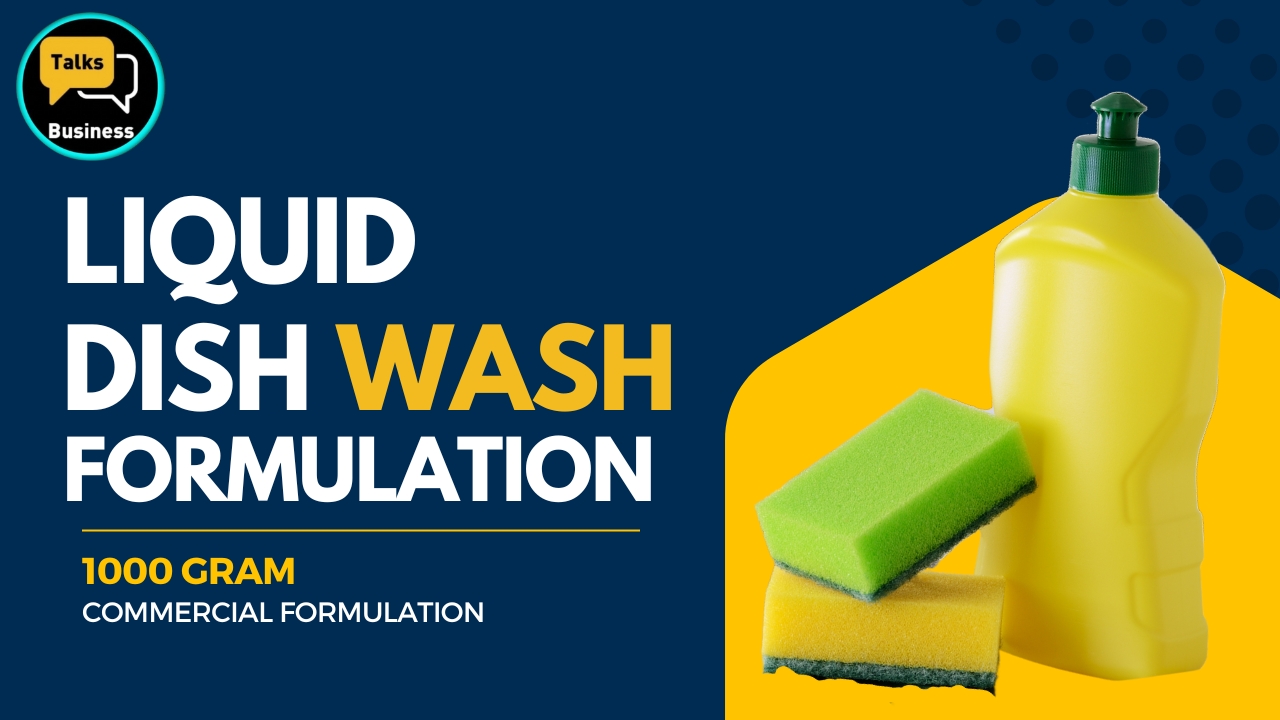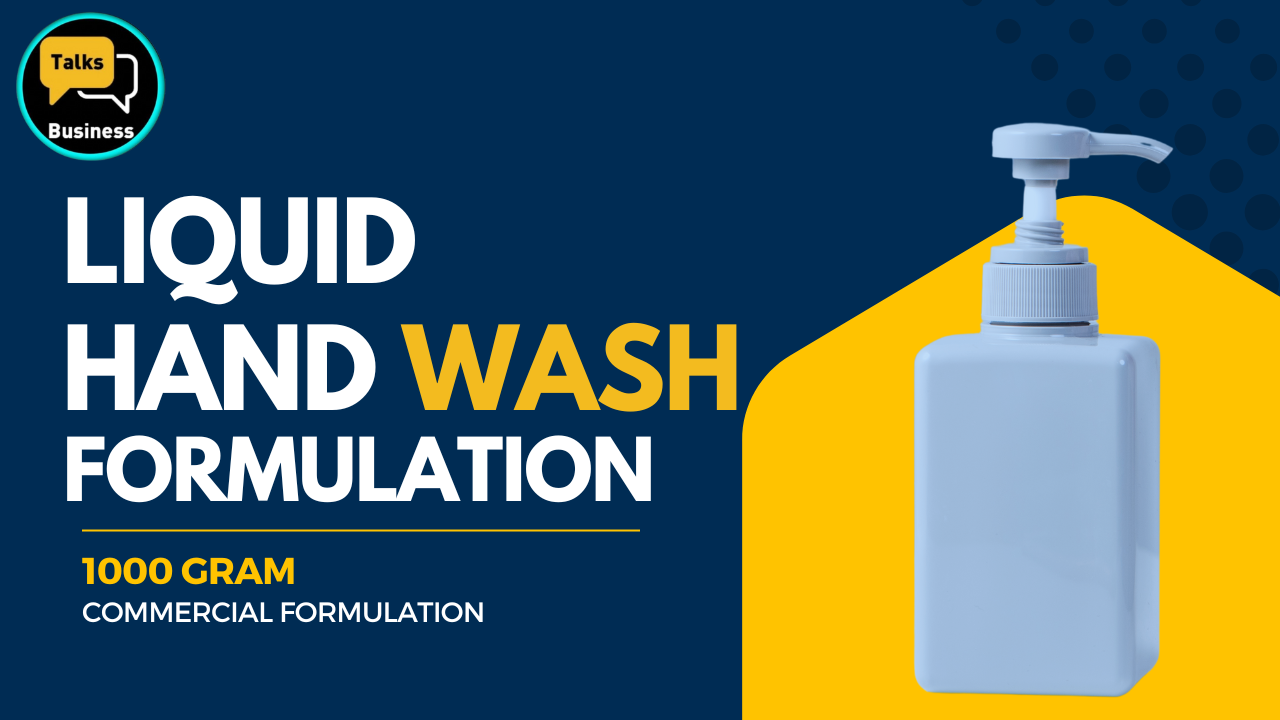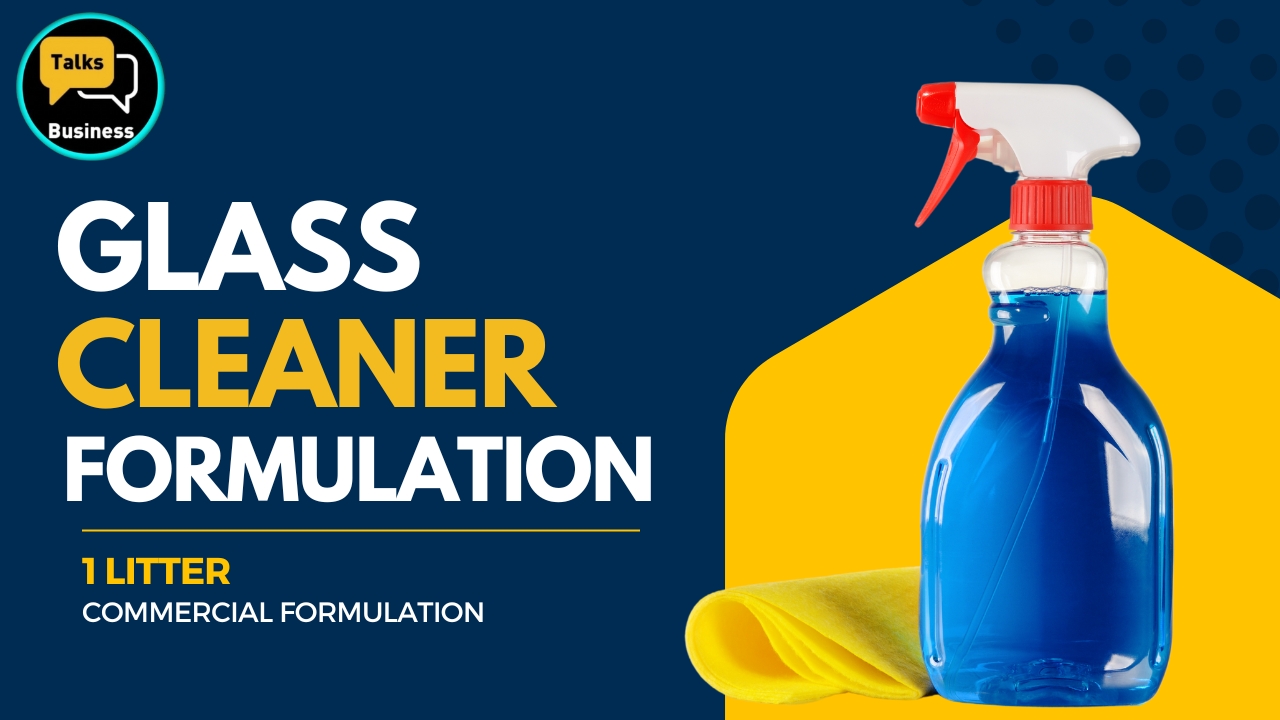Welcome to Business Talks !
Toilet Cleaner is a highly effective solution for cleaning and deodorizing toilets, ensuring a thorough and hygienic result
Baby Massage Oil is a nourishing blend of natural oils that moisturize and soothe delicate baby skin
The Drain Cleaner Formula is an effective solution for clearing blocked drains, with instructions for safe use and cleaning
Liquid Dishwash Formulation is a cleaning solution designed for effective grease removal and dishwashing
Household Formulas offers practical, cost-effective formulations for creating various cleaning and household products
Household formulas refer to a variety of chemical mixtures and recipes used to create cleaning agents, detergents, and other household products. These formulas are essential for maintaining a clean and hygienic living environment. They typically include ingredients like water, surfactants, emulsifiers, fragrances, and sometimes antimicrobial agents, depending on the intended use.
Many companies and individuals now focus on eco-friendly and non-toxic household formulas, responding to increasing concerns about environmental impact and health safety. These eco-friendly formulas often replace harsh chemicals with biodegradable and plant-based alternatives that are safer for both human use and the environment. For example, vinegar, baking soda, and essential oils are popular natural ingredients used in homemade household formulas to clean surfaces, deodorize, or disinfect.
Some common categories of household formulas include:
Cleaning Formulas: These are designed to remove dirt, grime, and stains from surfaces. Popular types include all-purpose cleaners, glass cleaners, and bathroom cleaners. These often contain surfactants, which help loosen and lift dirt from surfaces, making it easier to wipe away. Abrasives, like baking soda, may also be included in formulas that need to tackle tough stains or greasy residue.
Laundry Detergents: Laundry formulas can range from powders to liquids and capsules. They include a mix of surfactants, enzymes, and optical brighteners that help break down stains, improve color retention, and leave fabrics smelling fresh. More recently, natural alternatives like soap nuts or plant-based detergents have become more popular among eco-conscious consumers.
Disinfectants: With increased awareness of the importance of sanitization, disinfectant formulas are essential household staples. These formulas are typically alcohol or bleach-based and are designed to kill bacteria, viruses, and fungi on high-touch surfaces such as countertops, doorknobs, and bathroom fixtures.
Deodorizers: Odor-removing formulas often rely on natural ingredients like baking soda, essential oils, or activated charcoal to neutralize and absorb unpleasant smells. These formulas are versatile, used in everything from pet care to general household maintenance.
Pest Control Formulas: Household formulas can also target common pests like ants, cockroaches, or mosquitoes. These formulas usually combine strong repellents with safe-for-home ingredients to keep pests at bay without introducing toxic chemicals into the household environment.
Household formulas are incredibly versatile, serving various purposes around the home, from cleaning surfaces and fabrics to disinfecting spaces and tackling stubborn stains. While many consumers opt for commercial cleaning products, the trend toward DIY household formulas continues to grow. These homemade alternatives are generally less expensive, easy to make, and customizable for different needs. Whether for general cleaning, laundry, or odor control, household formulas play an essential role in day-to-day cleanliness and maintenance.
For businesses, creating and selling effective household formulas can be a profitable venture. By developing unique blends that cater to specific needs or preferences, companies can stand out in an increasingly crowded market. As consumers become more health-conscious and environmentally aware, companies that emphasize the use of green, sustainable ingredients are well-positioned for success in the household formula industry.

